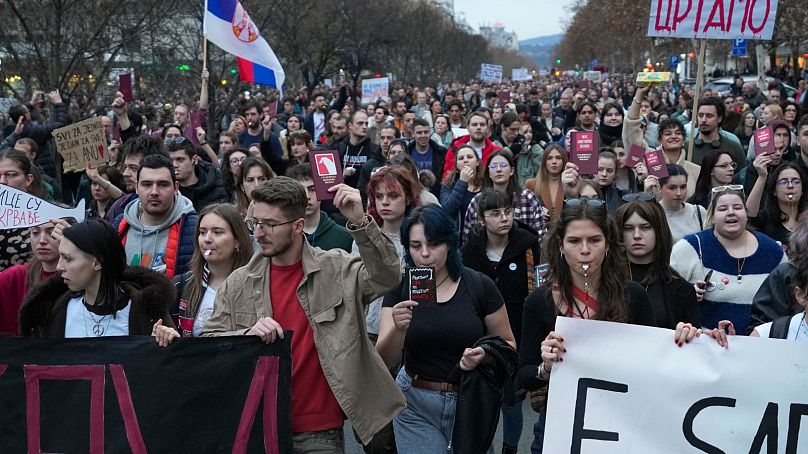President Vučić rejected a transitional government after Prime Minister Vučević's resignation to calm tensions following anti-corruption protests sparked by a deadly awning collapse.
Serbian President Aleksandar Vučić says that Prime Minister Miloš Vučević's resignation on Tuesday could lead to an early parliamentary election or a fresh chance for the ruling majority to form a brand new government.
Speaking at a news conference hours after Vučević resigned, Vučić said that the decision would be made within the next 10 days. He has rejected an opposition request for a transitional government and warned that Serbia's stability has been shaken.
"Serbia will preserve stability, Serbia will preserve peace," Vučić told journalists in Belgrade.
"Rage is mounting every day on the other side, the side of the majority. Rage I have not seen in my life," he added.
Vučević's resignation was an attempt to calm political tensions stoked by weeks of massive anti-corruption protests that started after the deadly collapse of a concrete overhang at a recently renovated train station.
The November collapse at the central station in Novi Sad, one of Serbia's largest cities, killed 15 people and happened months after it reopened, fuelling accusations that the construction was unsafe.
The tragedy has become a flashpoint for broader dissatisfaction with Serbia’s rule, which opponents label as authoritarian and has led to growing public demands for transparency in the country that has carried out a quick series of large infrastructure projects, mostly with Chinese companies.
Branimir Jovančićević, a professor at the Faculty of Chemistry in Belgrade, expressed hope that Vučević's resignation is a first step toward further political changes in Serbia, where power is concentrated in the hands of the president.
“If the president thinks that by replacing one, essentially, unimportant figure ... will solve the problem ... he is deeply mistaken," Jovančićević said.
The protests, including one Tuesday evening in Novi Sad that drew thousands of people, have spread to streets and university campuses throughout the country of roughly 6.6 million people.
Citizens from all walks of life, including actors, farmers, lawyers, and judges, have supported the student movement that has rattled Vučić, the country's most powerful political figure.












